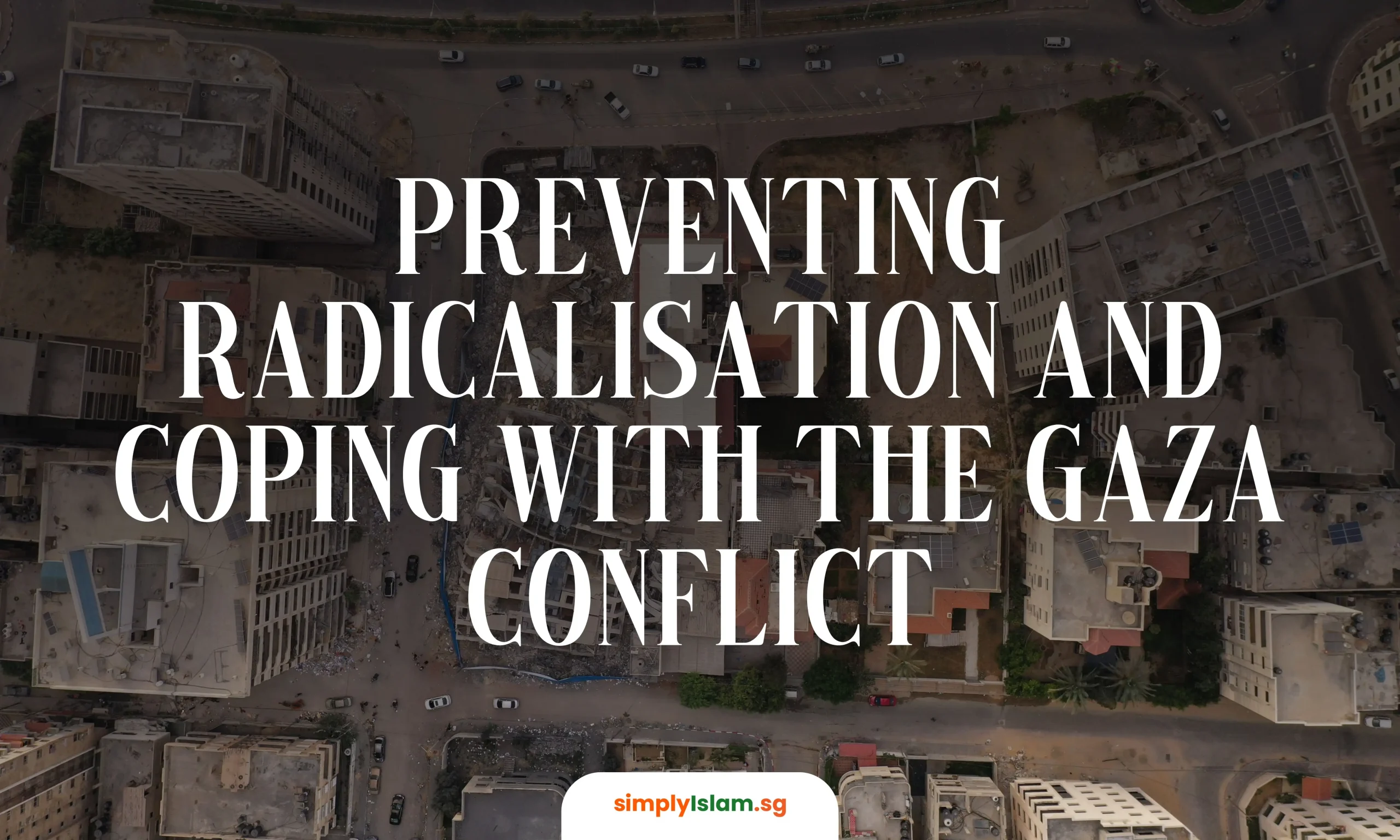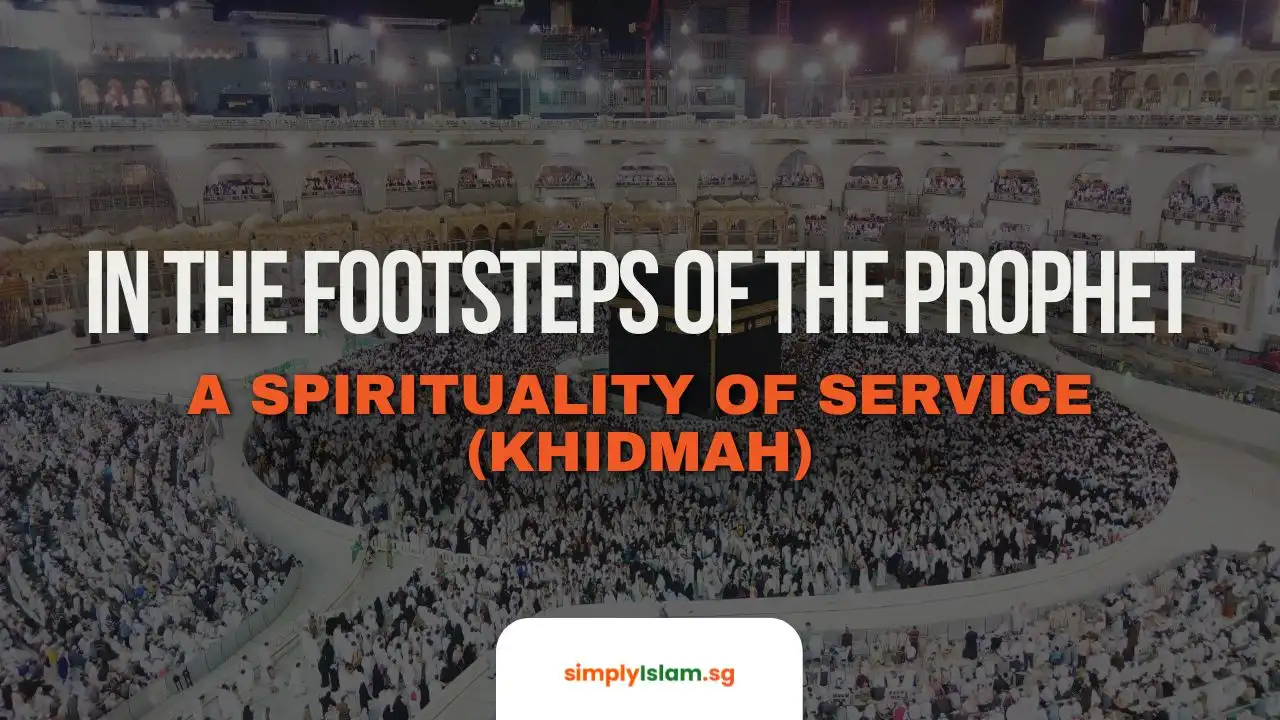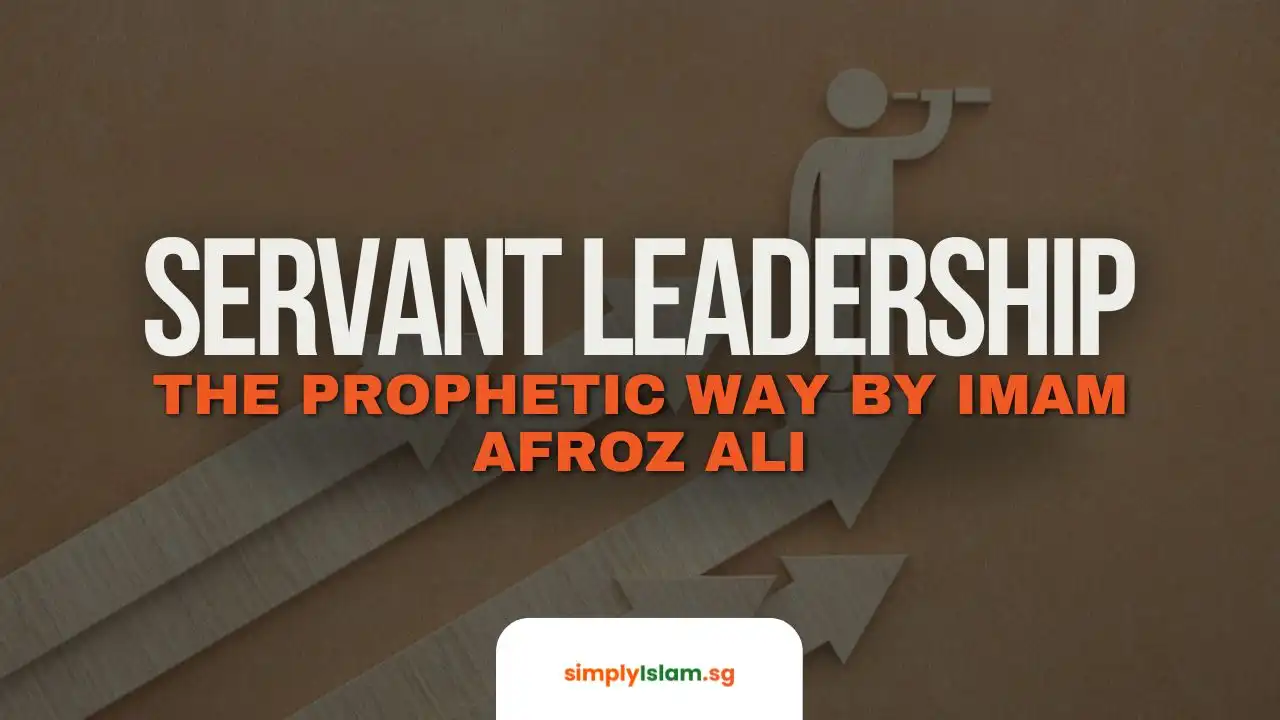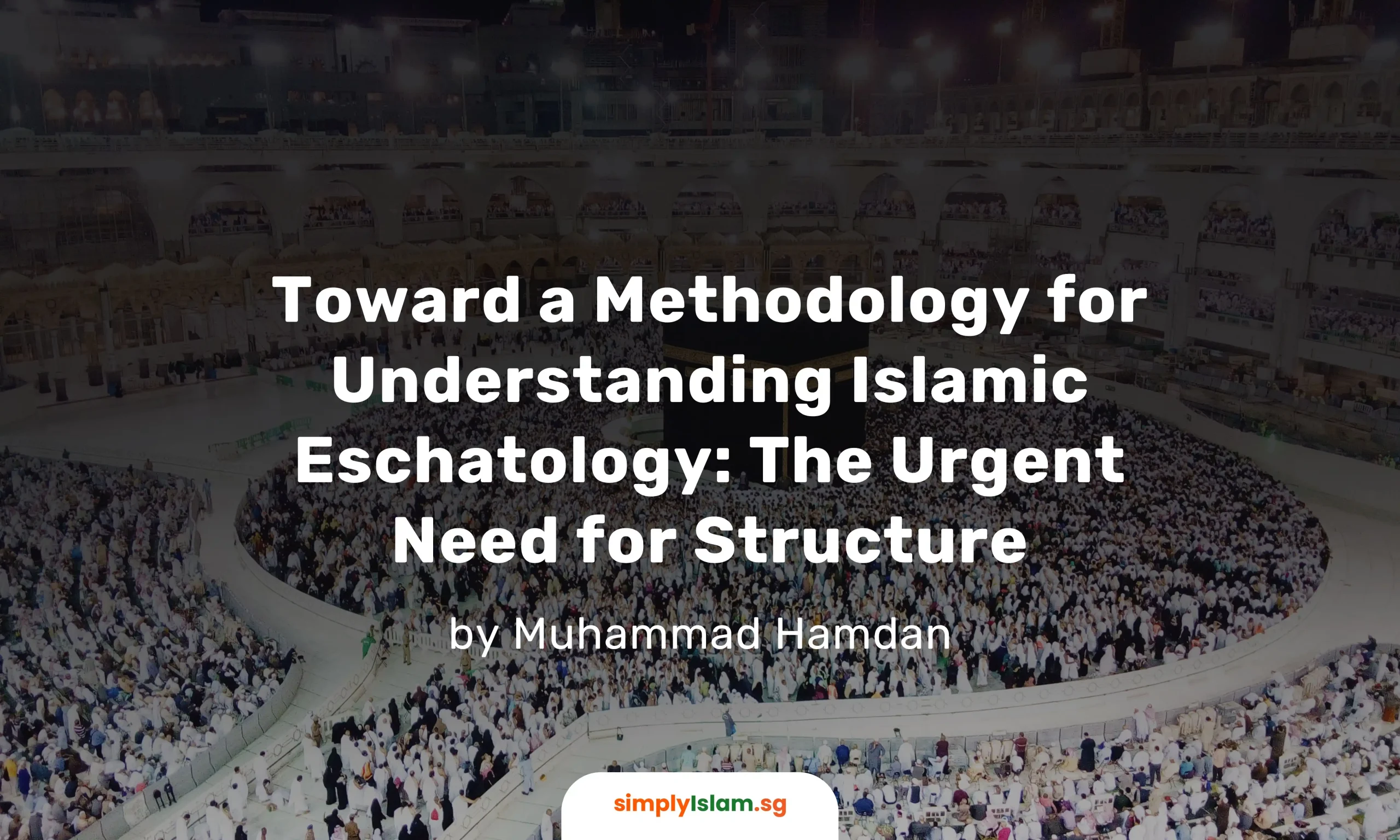
How to Perform Eid Al Fitr Prayer and Sunnahs to Do During Eid
He ﷺ Chose Mercy: Prophetic Responses to Hate, Hurt, and Hostility
Reflections for Singaporean Muslims
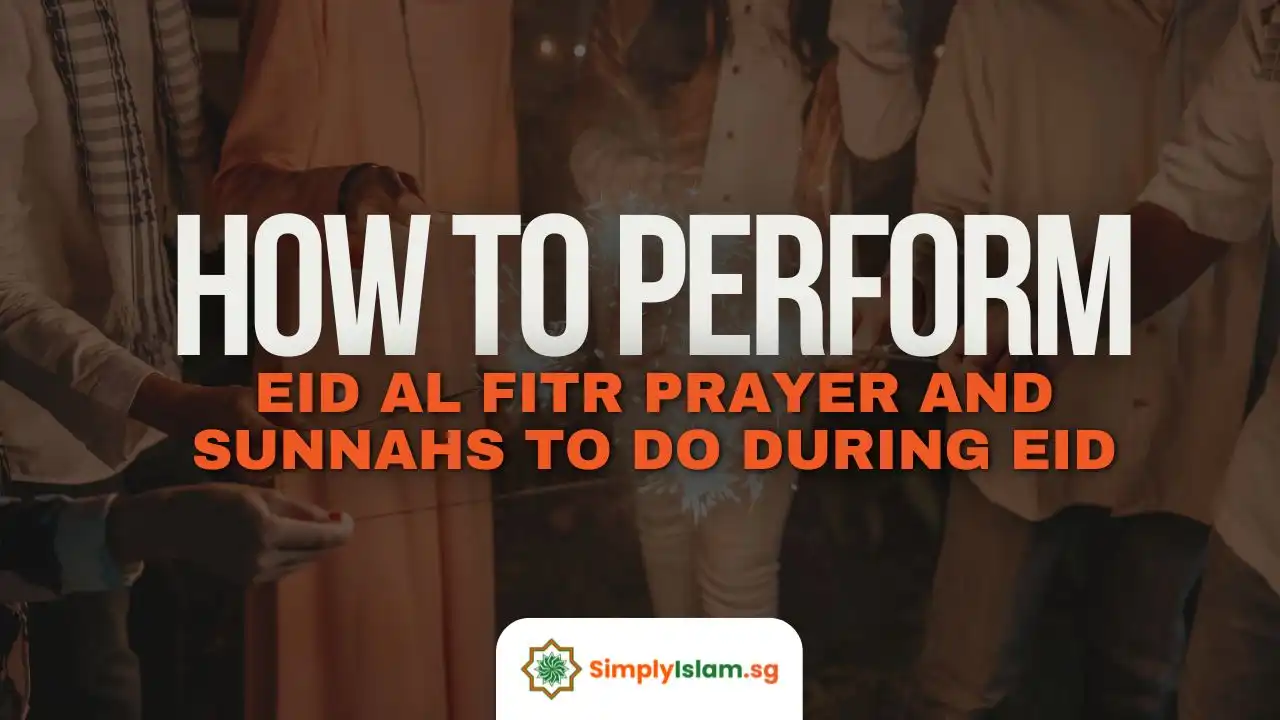
Eid Al Fitr is a joyous occasion celebrated by Muslims around the world, marking the end of Ramadan, a month of fasting, prayer, and reflection. One of the central aspects of Eid Al Fitr is the special Eid prayer, known as Salatul Eid, along with various Sunnahs (recommended practices) to observe during this festive period. In this comprehensive guide, we will delve into the steps to perform Eid Al Fitr prayer and explore the Sunnahs to follow during Eid festivities.
How to Perform Eid Al Fitr Prayer
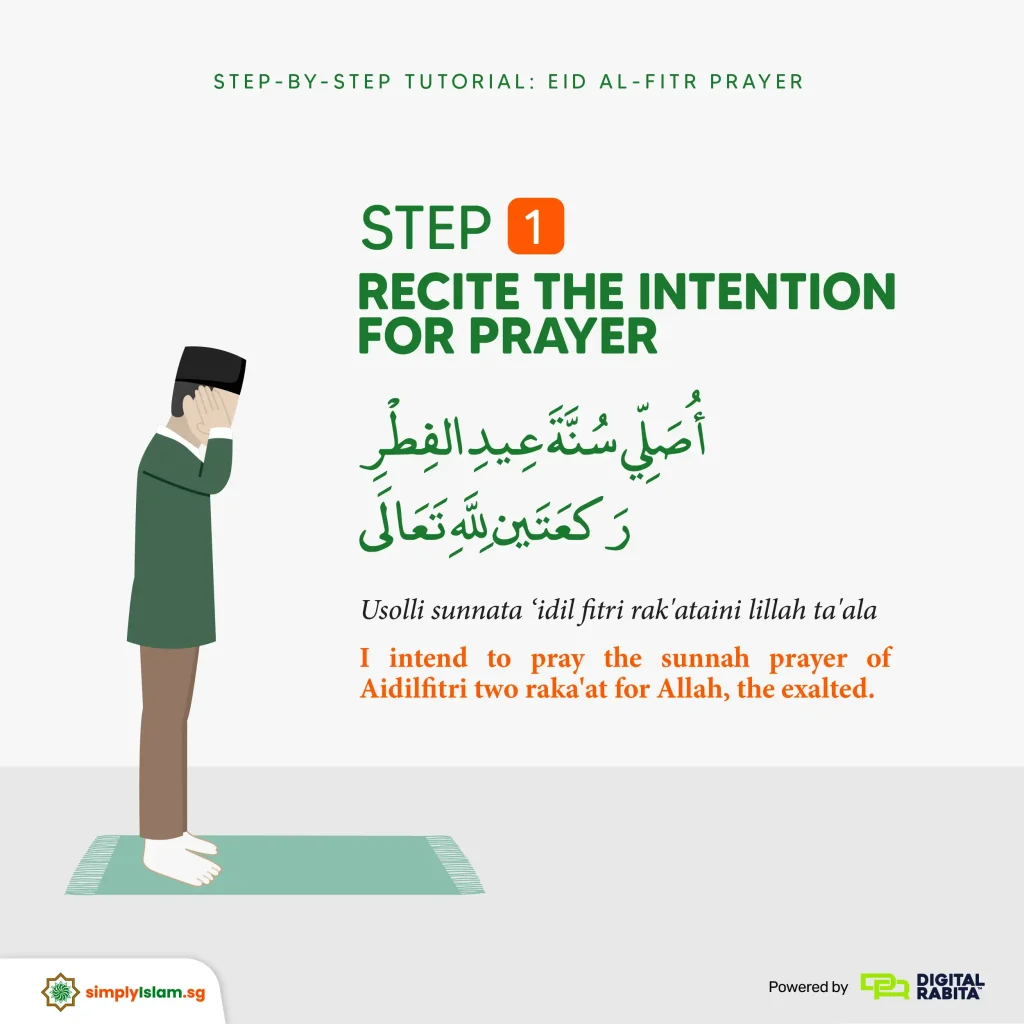
Step 1: Intention (Niyyah)
Before beginning the Eid Al Fitr prayer, it is essential to make a sincere intention (niyyah). This can be done by reciting the intention for Eid Al Fitr prayer:
أُصَلِّي سُنَّةَ عِيدِ الفِطْرِ رَكعَتَين لِلَّهِ تَعَالَى
Usolli sunnata ‘idil fitri rak’ataini lillah ta’ala
“I intend to pray the sunnah prayer of Aidilfitri two raka’at for Allah, the exalted.”
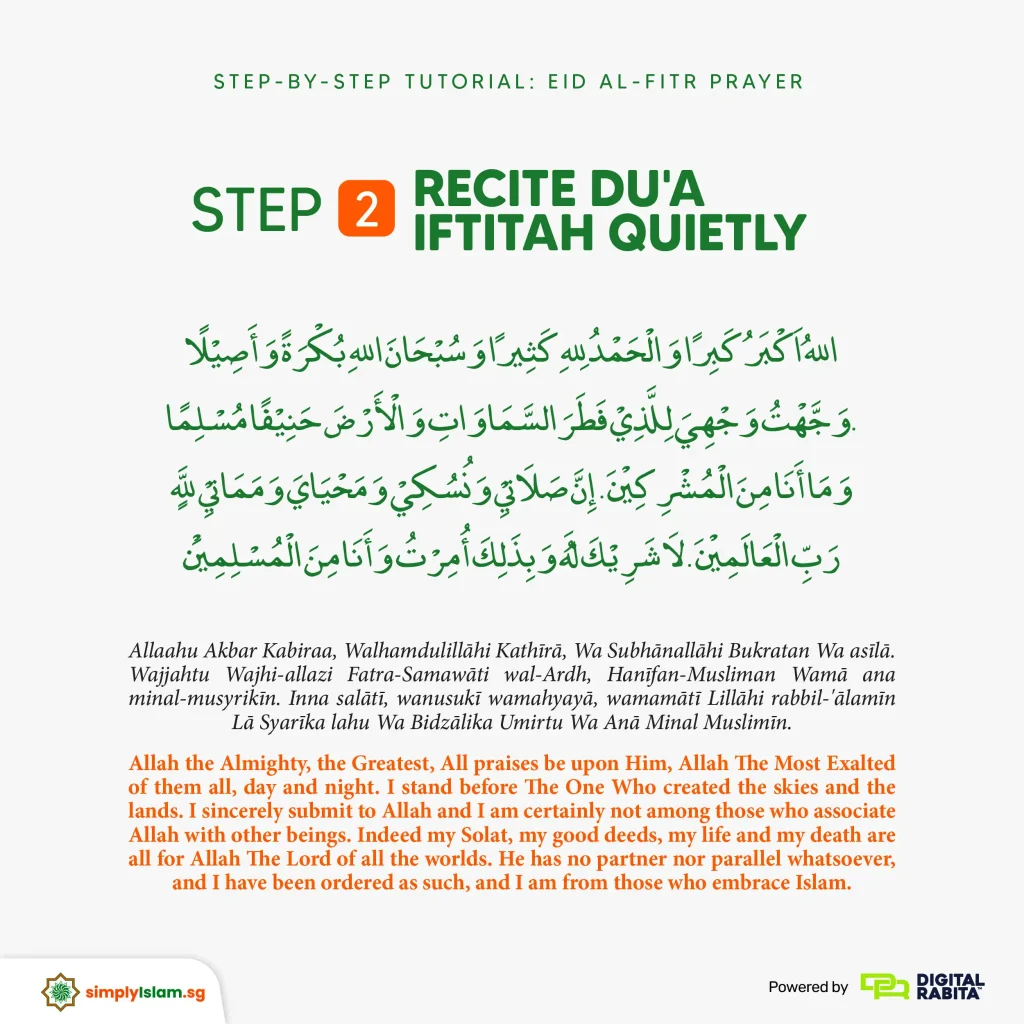
Step 2: Du’a Iftitah
Quietly recite Du’a Iftitah, a supplication that marks the beginning of the prayer:
بُكْرَةً وَأَصِيْلًا .وَجَّهْتُ وَجْهِيَ لِلَّذِيْ فَطَرَالسَّمَاوَاتِ وَالْأَرْضَ حَنِيْفًا مُسْلِمًا وَمَا أَنَا مِنَ الْمُشْرِكِيْنَ . إِنَّ صَلَاتِيْ وَنُسُكِيْ وَمَحْيَايَ وَمَمَاتِيْ لِلَّهِ رَبِّ الْعَالَمِيْنَ . لاَ شَرِيْكَ لَهُ وَبِذَلِكَ أُمِرْتُ وَأَنَا مِنَ الْمُسْلِمِيْنَ
**Allaahu Akbar Kabiraa, Walhamdulillāhi Kathīrā, Wa Subhānallāhi Bukratan Wa aṣīlā. Wajjahtu Wajhi-allazi Fatra-Samawāti wal-Ardh, Hanīfan-Musliman Wamā ana minal-musyrikīn. Inna ṣalātī, wanusukī wamahyayā, wamamātī Lillāhi rabbil-‘ālamīn Lā Syarīka lahu Wa Bidzālika Umirtu Wa Anā Minal Muslimīn.”
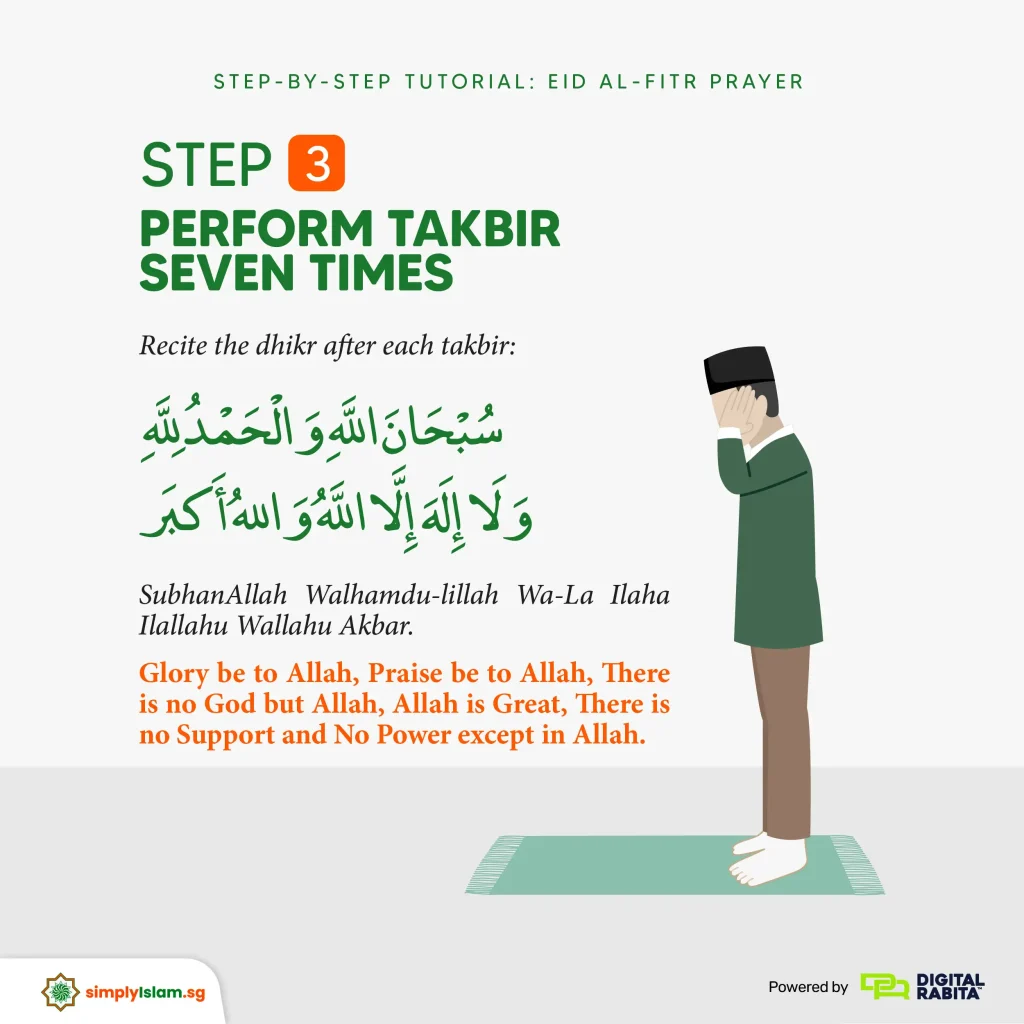
Step 3: Takbir
Begin the prayer with seven takbirs (saying Allahu Akbar) and follow each takbir with the following dhikr:
سُبْحَانَ اللَّهِ وَالْحَمْدُ لِلَّهِ وَلَا إِلَهَ إِلَّا اللَّهُ وَاللهُ أَكبَر
SubhanAllah Walhamdu-lillah Wa-La Ilaha Ilallahu Wallahu Akbar.
“Glory be to Allah, Praise be to Allah, There is no God but Allah, Allah is Great.”
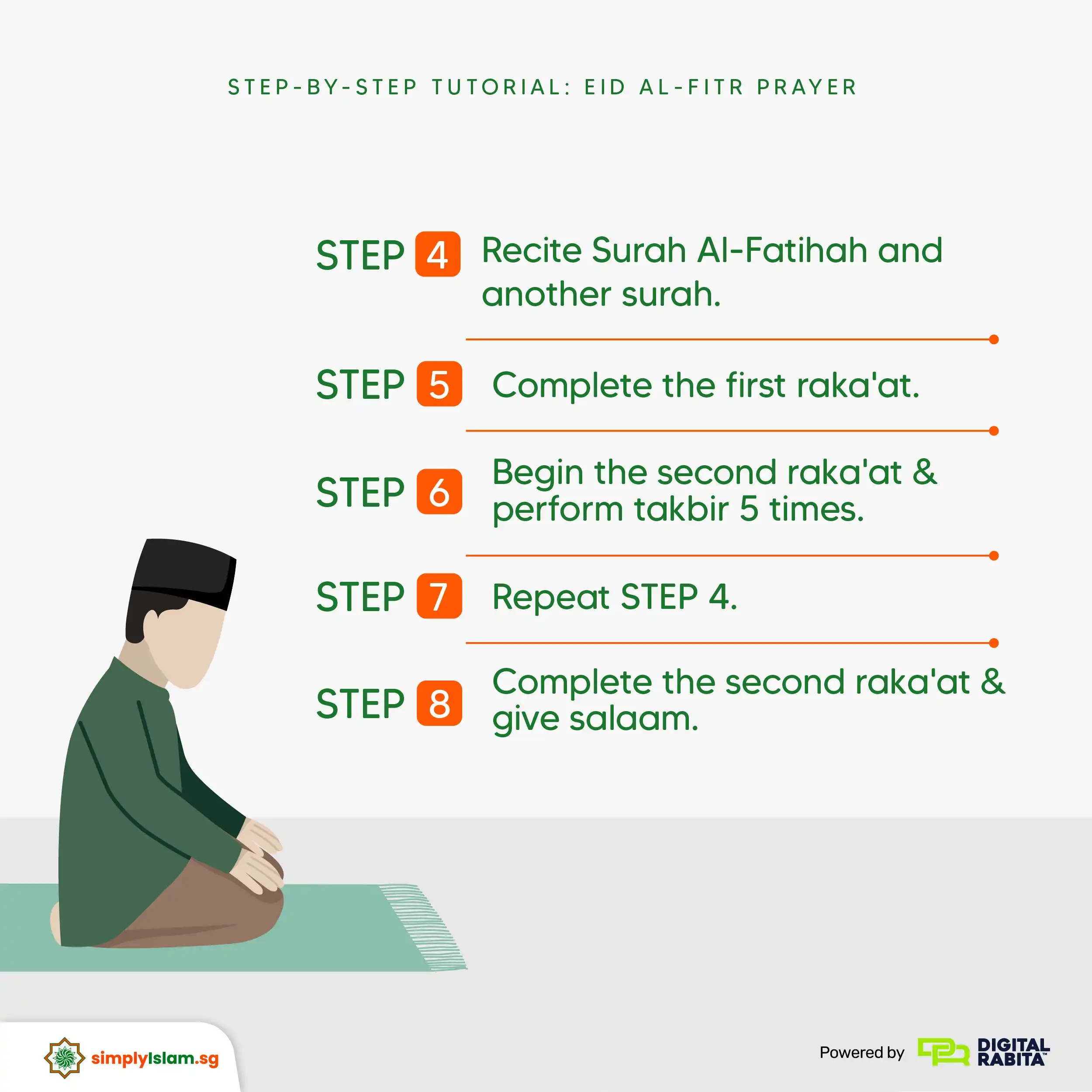
Step 4: Recitation of Surah Al-Fatihah and another Surah
Recite Surah Al-Fatihah and another surah of your choice in the first raka’at.
Step 5: Completion of First Raka’at
Complete the first raka’at by going into ruku’ (bowing position), sujood (prostration), and then sitting for the tashahhud (testimony of faith).
Step 6: Second Raka’at and Additional Takbirs
Begin the second raka’at with five additional takbirs.
Step 7: Repeat Recitation of Surah Al-Fatihah and another Surah
Repeat the recitation of Surah Al-Fatihah and another surah in the second raka’at.
Step 8: Completion of Second Raka’at and Giving Salaam
Complete the second raka’at, recite the tashahhud, and conclude the prayer with the salaam (salutation).
Sunnahs to Do During Eid Al Fitr
In addition to performing the Eid Al Fitr prayer, there are several Sunnahs to observe during Eid celebrations:
Recitation of Takbir:
During the days of Eid, Muslims are encouraged to recite Takbir abundantly, proclaiming the greatness of Allah with phrases such as “Allahu Akbar” (Allah is the Greatest). This act of Takbir serves as a reminder of the magnificence of Allah and the blessings of Eid. It is a joyful expression of faith and gratitude, filling the atmosphere with a sense of unity and celebration among the Muslim community.
Increase in Worship and Du’a:
Eid is a time of heightened spirituality and devotion. Muslims are advised to dedicate extra time to worship during the night of Eid, engaging in acts such as recitation of the Quran, voluntary prayers (Nafilah), and making heartfelt supplications (Du’a). This increased worship allows believers to seek closeness to Allah, seek forgiveness, and express gratitude for the blessings received during Ramadan and Eid.
Perform Ghusl:
Taking a ritual bath (ghusl) on the morning of Eid is a recommended practice in Islam. Ghusl symbolizes purification and spiritual renewal, preparing oneself for the special prayers and festivities of Eid. It is a way to cleanse the body and soul, enhancing one’s spiritual connection with Allah and entering Eid with a refreshed state of mind and heart.
Wear Best Clothes:
Dressing in one’s finest attire on Eid is not just a cultural tradition but also a Sunnah (recommended practice) in Islam. Wearing clean, modest, and festive clothing reflects joy, gratitude, and respect for the special occasion of Eid. It is a way to honor the day and showcase the beauty of Islam through dignified appearance and conduct.
Put on Perfume:
Applying perfume (attar) before heading out for Eid prayers and celebrations is a Sunnah that adds a pleasant fragrance to the atmosphere and enhances one’s personal grooming. It signifies purification, beautification, and preparation for the auspicious occasion of Eid. Using fragrance also aligns with the Prophetic tradition of maintaining good hygiene and pleasant appearance during festive gatherings.
Eat Before Eid Prayers:
Having a light meal before attending Eid prayers is in accordance with the Sunnah of not fasting on Eid day. It is recommended to break the fast of Ramadan with dates or water before going for Eid prayers. Eating a small meal before Eid prayers ensures that one fulfills the Sunnah of not fasting on Eid while also maintaining energy and focus during the special prayers and celebrations.
Perform Eid Sunnah Prayers:
Engaging in the recommended Eid Sunnah prayers is an integral part of Eid celebrations. These prayers are performed after the Eid congregation prayer and consist of additional rak’ahs (units of prayer) as a way to seek blessings, express gratitude, and strengthen one’s connection with Allah. Following the Sunnah prayers on Eid enhances the spiritual experience of the day and brings abundant rewards.
Listen to Khutbah:
Listening attentively to the Khutbah (sermon) delivered after Eid prayers is a Sunnah that holds great significance. The Khutbah on Eid usually includes reminders about the importance of faith, gratitude, brotherhood/sisterhood, and community responsibilities. It is an opportunity to gain spiritual insights, reflect on the blessings of Eid, and receive guidance for leading a righteous life.
Make Du’a for Each Other:
Exchanging blessings and goodwill by reciting “Taqabbal Allahu Minna Wa Minkum” (May Allah accept (the fast and worship) from us and from you) with fellow Muslims is a beautiful tradition on Eid. This du’a reflects mutual respect, love, and solidarity within the Muslim community. It is a way to spread positivity, strengthen bonds, and invoke Allah’s blessings for each other during Eid and beyond.
Visit Relatives:
Visiting relatives and maintaining family bonds on Eid is a Sunnah that promotes unity, love, and compassion. It is an opportunity to strengthen familial ties, share blessings, and foster a sense of belonging within the extended family. Visiting relatives also embodies the spirit of generosity, kindness, and social harmony, which are core values in Islam.
Etiquette when Visiting Friends and Families on Eid Al Fitr
Eat quickly if food or drinks are served:
When visiting friends and family during Eid, it is courteous to eat promptly if food or drinks are served. This shows appreciation for the host’s efforts in preparing the meal and allows for a smooth and enjoyable dining experience for everyone. Eating quickly also ensures that the host does not feel pressured or uncomfortable due to prolonged meal times.
Don’t ask to be served food or things that would trouble homeowners:
It is important to be considerate of the host’s hospitality and not make demands or requests that could inconvenience them. Avoid asking for specific dishes or beverages unless offered, and refrain from requesting items that may be difficult for the homeowners to provide on short notice. Respect their efforts and offerings graciously.
If invited, inform who and how many people would come to visit:
If you receive an invitation to visit someone’s home for Eid, it is courteous to inform the host in advance about the number of guests accompanying you. This helps the host prepare adequately, such as arranging seating, food portions, and hospitality arrangements. Clear communication ensures a comfortable and welcoming environment for everyone.
Avoid doing things that would trouble or hurt the homeowners:
Show respect and consideration for the homeowners’ property and preferences. Avoid behaviors that could cause inconvenience or discomfort, such as bringing pets without prior approval, smoking in non-designated areas, or engaging in loud or disruptive activities. Be mindful of cultural sensitivities and household rules.
Make du’a for the well-being of the homeowners:
Expressing sincere prayers (du’a) for the well-being, prosperity, and happiness of the homeowners is a beautiful gesture of goodwill and blessings. Take a moment to offer heartfelt prayers for the host’s family, health, and success. This reflects genuine care and kindness towards the host and fosters a positive atmosphere of spiritual connection.
Do not stay or visit someone for too long that it would trouble the homeowners:
Be mindful of the length of your visit to ensure it does not impose on the host’s time or disrupt their schedule. Avoid overstaying your welcome and be attentive to social cues indicating when it is appropriate to depart. Respect the host’s privacy and responsibilities by maintaining a reasonable duration for your visit.
Choose appropriate times to visit:
When planning your visit during Eid, consider the host’s schedule and preferences. Choose suitable times that are convenient for the homeowners, such as avoiding early mornings or late evenings unless specifically invited for such occasions. Respect their time and commitments by coordinating your visit at a mutually agreeable time.
By following these etiquette guidelines when visiting friends and family during Eid, you contribute to a harmonious and enjoyable experience for both guests and hosts. Your thoughtfulness, respect, and consideration reflect the spirit of Eid and strengthen bonds of kinship and friendship within the community.
In conclusion, Eid Al Fitr is a time of celebration, gratitude, and spiritual renewal for Muslims worldwide. By performing the Eid Al Fitr prayer with sincerity, observing the recommended Sunnahs, and practicing etiquette when visiting our friends and family, believers can enhance the blessings of this auspicious occasion and strengthen their connection with Allah and the community. May Allah accept our prayers and grant us a blessed Eid Al Fitr. Eid Mubarak!



